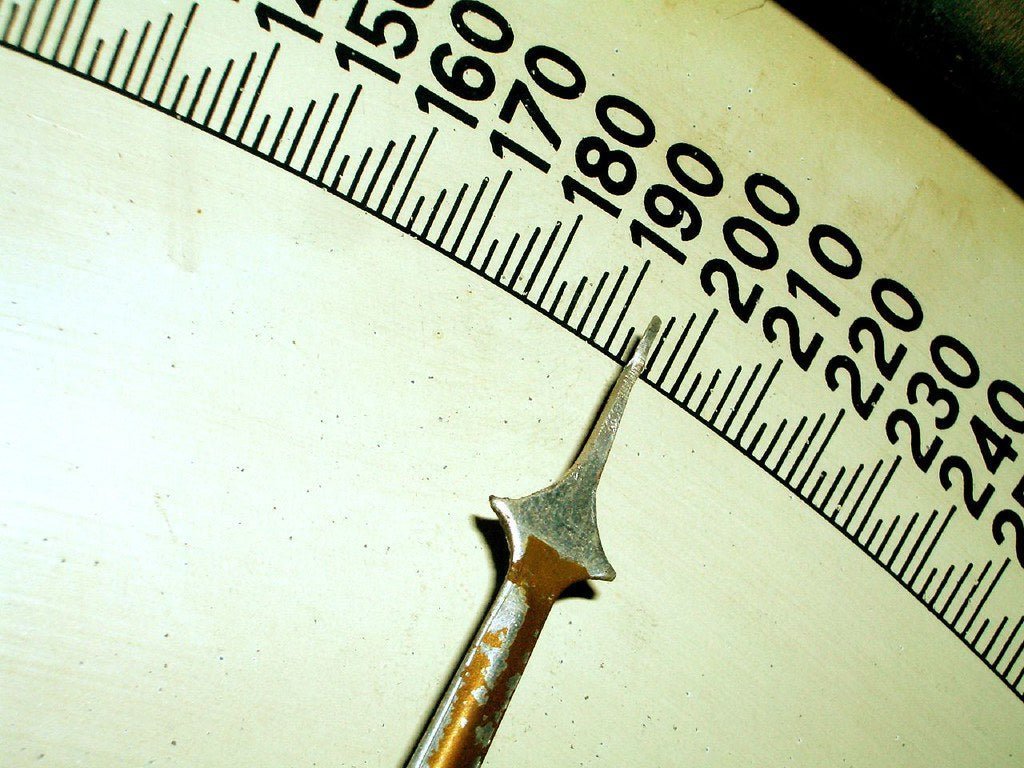Weight gain during menopause is a common and frustrating experience for many women. It can feel disheartening to see the numbers on the scale rise even when you haven't changed your diet or exercise habits. But why does this happen? And more importantly, what can you do about it? Let's look at the science behind menopausal weight gain and discuss practical strategies to manage it.
Understanding the Menopausal Weight Gain Puzzle
Many women find themselves gaining weight, particularly around their midsection, during perimenopause (the transition period before menopause) and menopause. This isn't just about appearance - it can have real implications for your health and well-being. Let's break down the factors contributing to this common issue.
The Hormonal Havoc
At the heart of menopausal weight gain lies a complex interplay of hormones:
- Oestrogen Decline: As ovarian function decreases, so do oestrogen levels. Your body, clever as it is, looks for other sources of oestrogen - primarily, fat cells. This can lead to increased fat storage, especially around the abdomen.
- Oestrone Production: Fat cells produce a type of oestrogen called oestrone. While it's less potent than the oestradiol produced by your ovaries, it's better than nothing as far as your body is concerned. This can create a cycle of weight gain as your body tries to boost oestrogen levels.
- Testosterone Decrease: It's not just oestrogen that's affected. Testosterone levels also decline, which can lead to decreased muscle mass and a slower metabolism.
- Insulin Resistance: Hormonal changes can make your body less responsive to insulin, potentially leading to increased fat storage and difficulty losing weight.
The Sleep-Weight Connection
Poor sleep is a common complaint during menopause, often due to night sweats and hot flushes. But the impact of sleep disturbances goes beyond just feeling tired:
- Leptin and Ghrelin Imbalance: These 'hunger hormones' get thrown off balance with poor sleep. Ghrelin, which stimulates appetite, increases, while leptin, which signals fullness, decreases.
- Cortisol Spikes: Lack of sleep can lead to increased cortisol (stress hormone) levels, which is associated with increased abdominal fat storage.
- Decreased Willpower: When you're tired, you're more likely to reach for high-calorie, comforting foods and less likely to stick to your exercise routine.
The Activity Factor
Many women find themselves less active during menopause for various reasons:
- Joint Pain: Oestrogen has anti-inflammatory properties, so its decline can lead to increased joint pain, making exercise uncomfortable.
- Fatigue: Hormonal fluctuations and sleep disturbances can leave you feeling too tired for your usual workouts.
- Mood Changes: Depression and anxiety, which can be more common during menopause, might decrease motivation for physical activity.
The Metabolic Slowdown
As we age, our metabolism naturally slows down. This is compounded by hormonal changes during menopause:
- Muscle Loss: Decreased testosterone and oestrogen can lead to loss of muscle mass, which burns more calories than fat tissue.
- Thyroid Changes: Some women experience changes in thyroid function during menopause, which can affect metabolism.
The Ripple Effects of Menopausal Weight Gain
Weight gain during menopause isn't just a cosmetic concern. It can have far-reaching effects on your physical and emotional well-being:
- Increased Health Risks: Extra weight, especially around the abdomen, is associated with a higher risk of heart disease, type 2 diabetes, and certain cancers.
- Joint Stress: Additional weight puts more stress on your joints, potentially exacerbating arthritis or causing joint pain.
- Self-Esteem and Body Image: Weight gain can negatively impact how you feel about your body, potentially affecting your confidence and mental health.
- Sleep Apnea: Weight gain increases the risk of sleep apnea, which can further disrupt your sleep.
- Hot Flushes: Some studies suggest that being overweight can increase the frequency and severity of hot flushes.
Strategies for Managing Menopausal Weight Gain
While menopausal weight gain can feel inevitable, there are many strategies you can employ to maintain a healthy weight:
1. Embrace the Mediterranean Diet
The Mediterranean diet isn't just a passing fad - it's a sustainable eating pattern with proven health benefits:
- Rich in Plant-Based Foods: Focus on fruits, vegetables, whole grains, legumes, nuts, and seeds.
- Healthy Fats: Use olive oil as your primary fat source and include fatty fish like salmon and sardines.
- Moderate Protein: Include lean poultry, fish, and plant-based proteins.
- Limited Red Meat and Processed Foods: These should be occasional treats rather than daily staples.
2. Mind Your Portions
As your metabolism slows, you may need fewer calories to maintain your weight:
- Use smaller plates to help control portions visually.
- Practise mindful eating - eat slowly and pay attention to your hunger and fullness cues.
- Consider tracking your food intake for a while to become more aware of your eating patterns.
3. Prioritise Protein
Protein is crucial for maintaining muscle mass and can help you feel fuller for longer:
- Aim for protein at every meal and snack.
- Good sources include lean meats, fish, eggs, legumes, and dairy or plant-based alternatives.
4. Stay Hydrated
Sometimes thirst can be mistaken for hunger:
- Aim for at least 8 glasses of water a day.
- Herbal teas can be a great way to increase fluid intake and potentially help with symptoms like bloating.
5. Rethink Your Exercise Routine
Regular physical activity is crucial for maintaining a healthy weight and overall well-being:
- Strength Training: This helps maintain muscle mass and bone density. Aim for at least two sessions per week.
- Cardiovascular Exercise: Activities like brisk walking, swimming, or cycling can help burn calories and improve heart health.
- Yoga or Pilates: These can help with flexibility, balance, and stress reduction.
- Daily Movement: Look for ways to increase your daily activity, like taking the stairs or going for a walk during your lunch break.
6. Prioritise Sleep
Given the impact of poor sleep on weight, focusing on sleep hygiene is crucial:
- Stick to a consistent sleep schedule, even on weekends.
- Create a cool, dark, quiet sleep environment.
- Avoid screens for at least an hour before bed.
- Consider cognitive behavioural therapy for insomnia (CBT-I) if sleep problems persist.
7. Manage Stress
Chronic stress can contribute to weight gain and make it harder to stick to healthy habits:
- Practice relaxation techniques like deep breathing, meditation, or progressive muscle relaxation.
- Consider activities like gardening, art, or journaling to help manage stress.
- Don't hesitate to seek professional help if you're struggling with stress or mood changes.
8. Consider Hormone Replacement Therapy (HRT)
For some women, hormone replacement therapy can help manage menopausal symptoms and may have a positive effect on weight:
- Discuss the pros and cons of HRT with your healthcare provider to see if it's right for you.
- Remember, HRT isn't suitable for everyone, and the decision should be made on an individual basis.
The Role of Nutrition and Food Intolerances
During menopause, your body becomes more sensitive to what you eat. Some women develop new food intolerances or find that existing ones become more pronounced. Common culprits include:
- Dairy products
- Gluten
- Caffeine
- Alcohol
- Spicy foods
Identifying and managing food intolerances can help reduce bloating, discomfort, and potentially aid in weight management.
At Check My Body Health, we offer comprehensive food intolerance testing that can help you identify problem foods and create a personalised eating plan. By understanding which foods your body may be sensitive to, you can make informed choices that support your health and potentially make weight management easier.
Discover your food intolerances and take control of your menopausal journey. Learn more about our food intolerance tests.
Supporting Your Body with Targeted Supplements
While a balanced diet should be your primary source of nutrients, certain supplements can support your body during menopause:
- Calcium and Vitamin D: Essential for bone health as oestrogen levels decline.
- Omega-3 Fatty Acids: May help with mood swings and joint pain.
- Magnesium: Can aid with sleep and mood regulation.
- B-Complex Vitamins: Support energy levels and cognitive function.
- Probiotics: Support gut health, which can influence weight and overall well-being.
Check My Body Health offers a range of high-quality supplements designed to support women through menopause. Our products are carefully formulated to address the specific nutritional needs that arise during this life stage.
Explore our range of menopause-supporting supplements and give your body the support it deserves.
Embrace Your Changing Body
Remember, some weight gain during menopause is normal and even healthy. The goal should be overall health and well-being, not achieving a particular number on the scale. Embrace your changing body, focus on nourishing it with good food and joyful movement, and be kind to yourself as you navigate this new chapter of life.
By understanding the complex factors contributing to menopausal weight gain and taking a holistic approach to managing it, you can navigate this transition with grace, health, and vitality. Remember, every woman's experience is unique - what works for one may not work for another. Listen to your body, work with your healthcare provider, and don't hesitate to seek support when you need it.
Your menopause journey is just that - a journey. With the right tools, knowledge, and support, you can make it a positive and empowering experience. Here's to your health and well-being in this new chapter of life!



